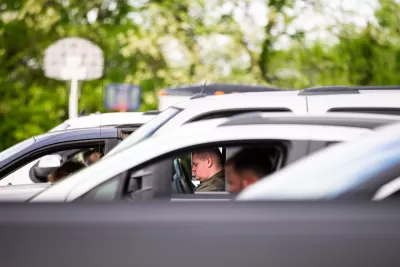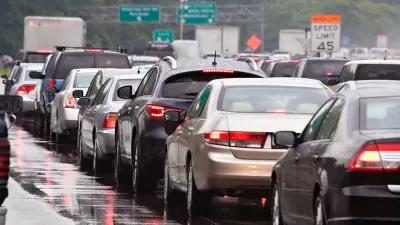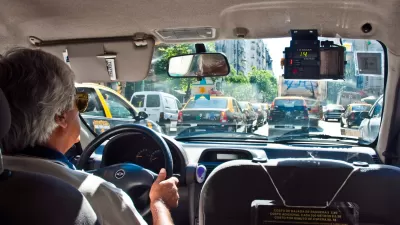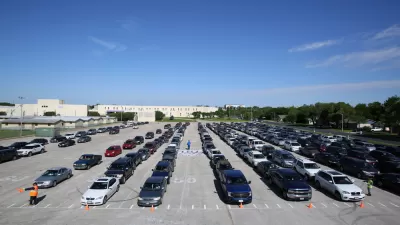A massive survey on the sentiments of Americans during the COVID-19 pandemic reports that many people are less likely to ride public transit, or rely on Uber and Lyft, in the future.

New survey data from IBM’s Institute for Business Value "gives a glimpse into how people will utilize transportation, both public and private, once the world reopens," according to an article by Colin Beresford. IBM surveyed 14,000 people and discovered that many respondents are reevaluating their transportation preferences.
Public transportation, ride-sharing services, and personal transportation are all things that people reported that they were going to approach differently. IBM surveyed 14,000 people (for the automotive portion of the survey) in April, and more than 17 percent said that they intend to use their personal vehicle more often due to COVID-19.
The numbers also include bad news for shared modes of transportation:
Of those who regularly used public transit such as buses, subways, or trains before the pandemic, 20 percent said that they no longer will do so, and another 28 percent said they will use it less frequently. When it comes to ride sharing, a majority of the respondents said they would use the services less often or stop using them completely.
One factor noted in the survey results that might control the potential for gridlock and air pollution to overwhelm the country as people use cars more than ever to socially isolate is the economic uncertainty that means many people who want to buy cars or drive their current cars more often simply won't be able to afford the option.
FULL STORY: Transportation Isn’t Going to Be the Same after Pandemic: Study

Florida Considers Legalizing ADUs
Current state law allows — but doesn’t require — cities to permit accessory dwelling units in single-family residential neighborhoods.

Manufactured Crisis: Losing the Nation’s Largest Source of Unsubsidized Affordable Housing
Manufactured housing communities have long been an affordable housing option for millions of people living in the U.S., but that affordability is disappearing rapidly. How did we get here?

Americans May Be Stuck — But Why?
Americans are moving a lot less than they once did, and that is a problem. While Yoni Applebaum, in his highly-publicized article Stuck, gets the reasons badly wrong, it's still important to ask: why are we moving so much less than before?

EV Chargers Now Outnumber Gas Pumps by Nearly 50% in California
Fast chargers still lag behind amidst rapid growth.

Affordable Housing Renovations Halt Mid-Air Amidst DOGE Clawbacks
HUD may rescind over a billion dollars earmarked for green building upgrades.

Has Anyone at USDOT Read Donald Shoup?
USDOT employees, who are required to go back to the office, will receive free parking at the agency’s D.C. offices — flying in the face of a growing research body that calls for pricing parking at its real value.
Urban Design for Planners 1: Software Tools
This six-course series explores essential urban design concepts using open source software and equips planners with the tools they need to participate fully in the urban design process.
Planning for Universal Design
Learn the tools for implementing Universal Design in planning regulations.
City of Moreno Valley
Institute for Housing and Urban Development Studies (IHS)
City of Grandview
Harvard GSD Executive Education
NYU Wagner Graduate School of Public Service
City of Cambridge, Maryland
Newport County Development Council: Connect Greater Newport





























